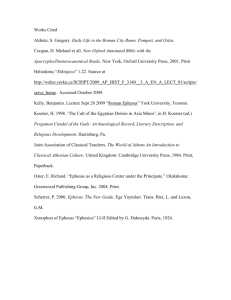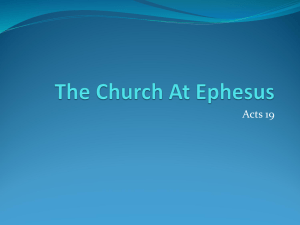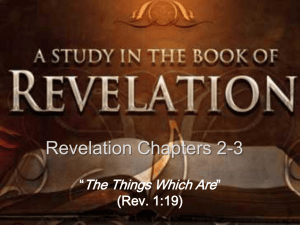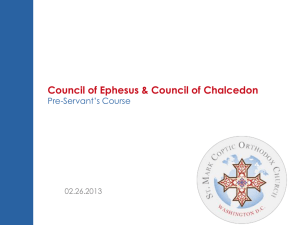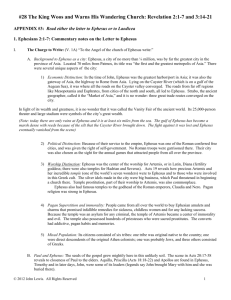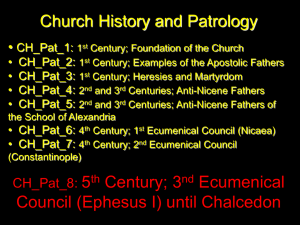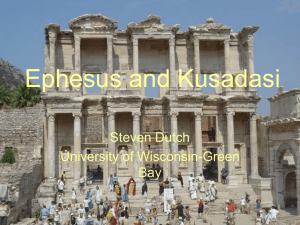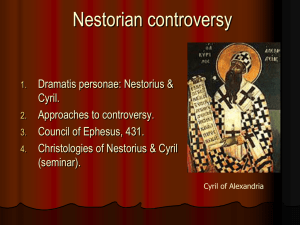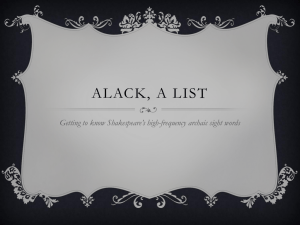Ephesus
advertisement
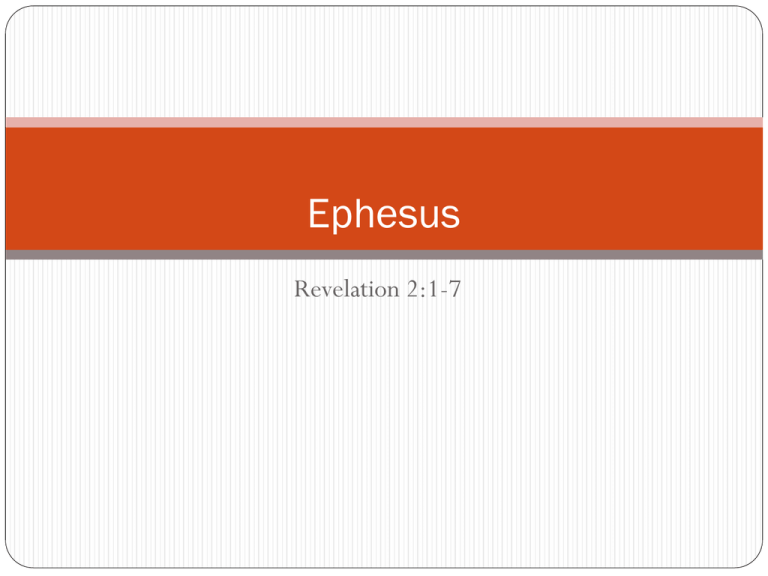
Ephesus Revelation 2:1-7 Unto the angel of the church of Ephesus write; These things saith he that holdeth the seven stars in his right hand, who walketh in the midst of the seven golden candlesticks; I know thy works, and thy labour, and thy patience, and how thou canst not bear them which are evil: and thou hast tried them which say they are apostles, and are not, and hast found them liars: And hast borne, and hast patience, and for my name’s sake hast laboured, and hast not fainted. Nevertheless I have somewhat against thee, because thou hast left thy first love. Remember therefore from whence thou art fallen, and repent, and do the first works; or else I will come unto thee quickly, and will remove thy candlestick out of his place, except thou repent. But this thou hast, that thou hatest the deeds of the Nicolaitans, which I also hate. He that hath an ear, let him hear what the Spirit saith unto the churches; To him that overcometh will I give to eat of the tree of life, which is in the midst of the paradise of God. (Revelation 2:1-7) Ephesus was a bustling, energetic, and intellectual Greco-Roman city when Paul visited it. It was considered the gateway of Asia. In fact, one of its statutes was that when a Roman proconsul came to take office as the new governor of Asia, he had to disembark at Ephesus and enter Asia through this city. For all travelers and for all trade—from the valleys round about and from Galatia, Euphrates, and Mesopotamia— Ephesus was the highway to Rome. Later Ephesus became known as the Highway of the Martyrs because it was through Ephesus that Christians were taken from Asia to the arena in Rome but at the time of Paul, Ephesus was a convenient and comfortable city in which to live. Its streets were straight and clean. Arcadia Way, leading from the port to amphitheater. Its houses were stylish and comfortable. Its library was extensive and adorned with beautiful sculpture. In the following picture you can see statues representing four different virtues, standing in their niches along the front of the library. The next picture shows the Celsus Library again, but also shows the gates to the right of the library that opened onto the smaller of the two agoras of Ephesus. In this smaller agora community business was often conducted in the open air. Commercial business was also conducted here. The next three slides are views of the statue of Arete at the library. Another statue at the library. And this is Sophia, the statute of wisdom. More views of the gates, known collectively as the Augustus Gate, which lead to the smaller agora. A side way through the Augustus Gate. Pillars at the lower, or smaller, agora. An artist’s reconstruction of the Temple of Diana (or Artemis) during the time of Paul. All that remains of the temple now—one pillar that has been reconstructed to show where the temple used to stand. Another temple at Ephesus, the Hadrian Temple (a painting of the ruins). Views of the larger of the two agoras in Ephesus. Agoras were market places. Two views of the large amphitheater in Ephesus, where Paul’s companions were taken in the uproar over Diana.
